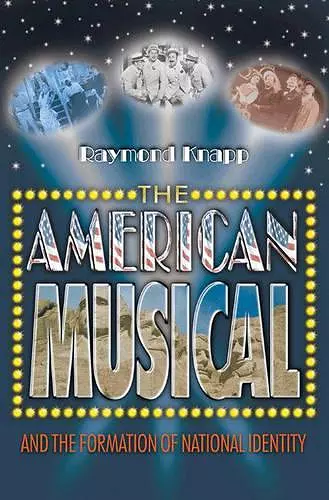The American Musical and the Formation of National Identity
Exploring the cultural significance of American musicals
Format:Paperback
Publisher:Princeton University Press
Published:9th May '06
Should be back in stock very soon

This insightful exploration of American musicals examines how they shape national identity, focusing on key productions and their cultural themes throughout history.
The American musical has become a significant cultural touchstone, resonating with audiences across the nation more than any other performance art form. In The American Musical and the Formation of National Identity, the author, a seasoned musicologist, delves into the intricate history of this genre, exploring how musicals reflect and shape themes of American national identity through their musical numbers. This comprehensive examination is designed for readers from all backgrounds, offering insightful discussions that reveal the genre's profound impact on societal perceptions of America.
The narrative begins with key historical influences that paved the way for the American musical, including the works of Gilbert and Sullivan, the vibrant world of nineteenth and early twentieth-century burlesque and vaudeville, and the iconic sounds of Tin Pan Alley. The book then transitions into a thematic exploration of fifteen notable musicals from the twentieth century, such as Show Boat (1927), Porgy and Bess (1935), and West Side Story (1957), categorizing them by their thematic explorations of American identity, race, and the complexities of wartime narratives.
Each chapter concludes with a thoughtful reflection on existing scholarly work related to the discussed musicals, while an extensive appendix offers additional resources, including plot summaries and song lists. The American Musical and the Formation of National Identity stands out as a groundbreaking contribution to musical scholarship, encouraging readers to view musicals through a fresh lens that highlights their cultural significance and artistic merit.
Winner of the 2004-2005 George Jean Nathan Award for Dramatic Criticism Finalist for the 2004 George Freedley Memorial Award, The Theatre Library Association "Knapp does an excellent job of tracing the roots of the musical, avoiding much of the received wisdom... When Knapp focuses on the structure of musicals, and how it works to move us and persuade us, he is very effective... "--Michael Friedman, London Review of Books "The breadth of Knapp's reading is astonishing, and his discussion of the historical background of the musical is admirable... Knapp writes extremely well, and not only his thoughts but also his suggestions for further study are well organized. So, too, is his consideration of the growth of the American union in the context of Oklahoma!, Guys and Dolls, and The Music Man."--Andrew Lamb, BBC Music Magazine "Knapp's well-researched and comprehensive presentation transcends the purely musical point of view. In his exploration of the underlying sociocultural fabric of a number of works, he puts the American musical theater on a par with its contemporary arts of jazz and film."--Ken McCoy, History "This is an intelligent, extremely well-written study which ... is as valuable for its demonstration of how musicals may be read as for its own insightful readings."--Charles Hamm, Kurt Weil Newsletter "This close musical analysis, combined with broad cultural comments about the power of the American musical, is highly original and much needed, especially as a teaching textbook."--Alisa Clapp-Itnyre, The Historian "This is an intelligent, extremely well-written study which ... is as valuable for its demonstration of how musicals may be read as for its own insightful readings."--Charles Hamm, Kurt Weill Newsletter "Raymond Knapp shows that while some musicals have served to reinforce the way people feel about America, many others have helped to challenge aspects of our culture that needed to be changed."--Stephen Peithman, Stage Directions "[Knapp] offers new insights on each work and writes in an accessible, engaging style... Knapp is ... most effective ... at negotiating the tensions ... between work and context, and between part and whole."--Walter Frisch, Current Musicology "Raymond Knapp has an extraordinarily perceptive ear. As he surveys the history of the American musical, he hears things--important things, revelatory things--that earlier writers who have attempted, systematically, to traverse this vast territory have missed. Hardly a page goes by without a 'Gee, I didn't realize that' moment... One of the loveliest features of these books is the generosity of the musical examples. Coordinated with the text are hundreds of musical excerpts which Princeton University Press has made available to readers through easy downloading from the Internet... It is clear that there is much to praise about Raymond Knapp's work, beginning with his vast knowledge of the subject and his infectious enthusiasm for it."--Edward Green, Popular Music and Society
- Winner of George Freedley Memorial Award 2004
ISBN: 9780691126135
Dimensions: unknown
Weight: 539g
384 pages